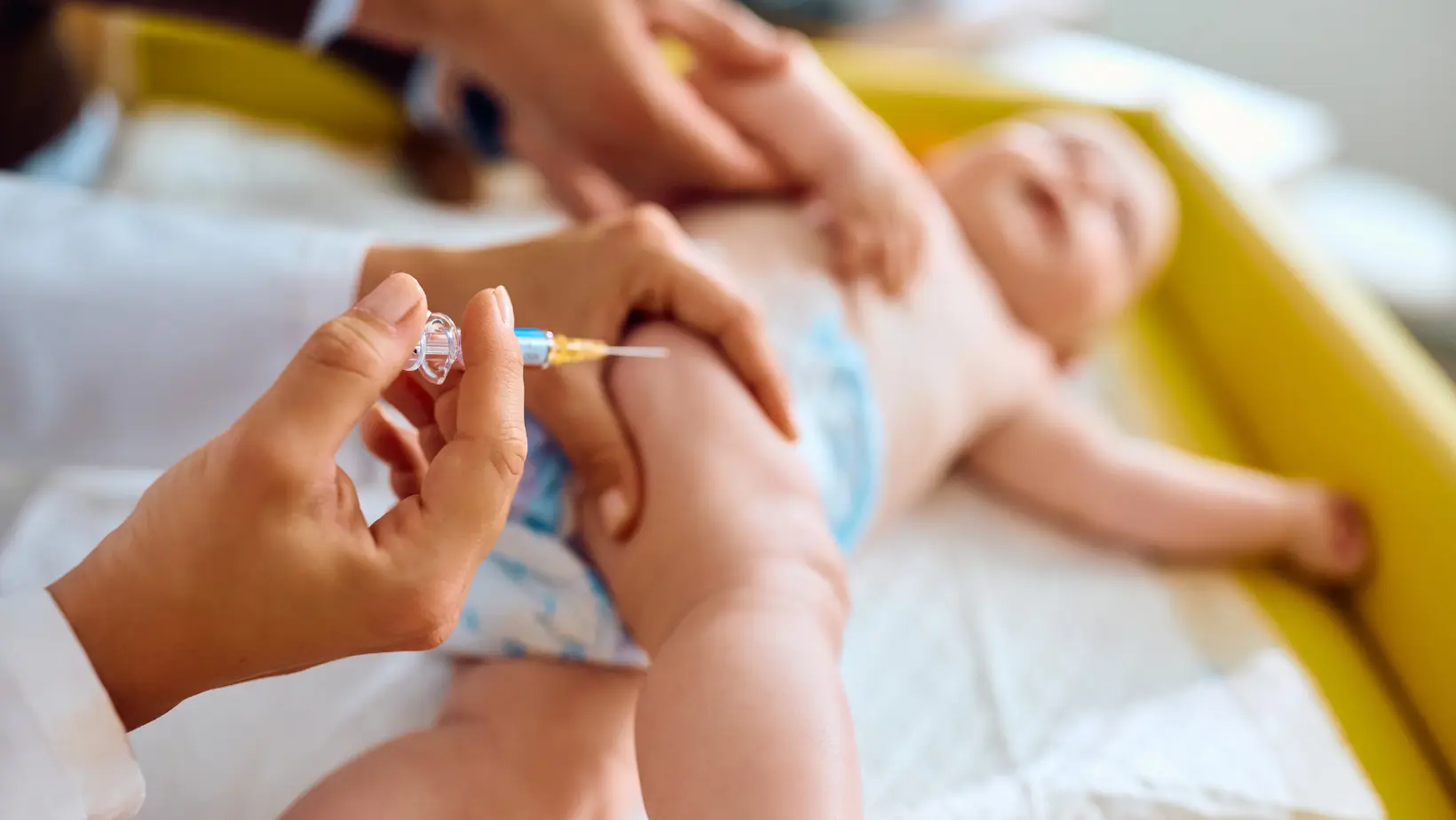To learn more about a baby’s immune system, read the previous article, A Baby’s Immune System.
In the credible literature about vaccinations, it seems that risks are higher due to illness than the undesired reactions that a vaccine can cause.
Encephalitis is a brain reaction or complication due to bacteria or a virus. It can cause severe irreversible injuries to the central nervous system following a measles vaccine, but this risk is only 1/1 million.
Rarely, the meningitis vaccine can damage the brain, and the chicken pox vaccine can very rarely cause skin infections, earaches, pneumonia and even death.
For an individual, vaccines are always a balance between the benefits of being immunised versus the risks associated with infection.
There are risks associated with local responses that occur after a vaccination, but most of the time they remain minor.
These can include:
- Inflammatory reactions: pain/tenderness at the site, redness, heat;
- Injection site swelling caused by cells filling with water in response to the immune system, creating a protective barrier. This is why a bump can appear for a couple of days on your baby’s thigh after the vaccination;
- Slight fever within 72 hours following a vaccine, lowered appetite, drowsiness, irritability and grumpiness can also be possible symptoms after an injection. The baby will need more love, hugs and reassurance;
- Rarely, severe reactions to a vaccine may occur. However, health professionals will keep you for 15 minutes after the vaccine to check for these reactions.
How can you help your baby after vaccination?
In principle, you should take care of the baby’s symptoms. Frequently parents will see no undesired reactions. There is no reason to give them something before the vaccine if the baby has no symptoms after the injection.
The Institut National de Santé Publique in Quebec doesn’t suggest giving painkillers before a vaccine. Instead, you should wait to see how your baby reacts in the following days before giving them medication as needed.
If your baby shows signs of discomfort or fever, you should apply a cold compress on your baby’s thigh to reduce the inflammatory process at the injection site. You can also give them Tylenol (Baby Atasol or Baby Acetaminophen) or Baby Advil.
You have to follow the recommended dose on the packaging based on the baby’s recent weight or their age.
Also, many parents worry about giving their baby a follow-up vaccine due to the reaction they had from a previous dose. In this case, you can give your baby Baby Tylenol or Advil 45 minutes before the vaccine to try and diminish the reactions. However, whether or not your baby reacted to a vaccine, it doesn’t mean they will respond in the same way to subsequent doses.
Vaccination Resources
To help the general population get access to vaccines, many resources are available. There are always vaccination clinics held weekly within the public health network in Quebec, and they’re free.
Vaccines can be provided by the medical team that regularly monitors your health. In some Family Doctor Groups or clinics, doctors and nurses can offer this service.
Travel clinics that can verify your immunisation record and provide you with vaccines to keep you up to date. They also offer specific vaccines that aren’t available elsewhere in the health network due to their scarcity.
Private vaccine clinics can also serve the population. These clinics are often more present in larger cities.
Parents, I hope this article about vaccines has answered some of your questions and highlighted the importance of getting vaccinated for our immune systems. You now have more information to make a clearer choice.
For more information on the topic, please watch my Facebook Live video about vaccines (in french) filmed with Christiane Dubreuil, a nurse specialising in vaccines.
Talk soon,
Marie
The Baby Expert


